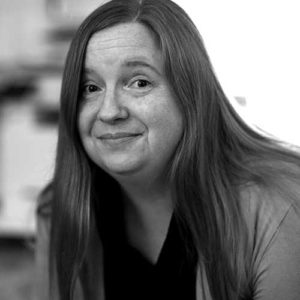
- This event has passed.
Karuna Live! Sexuality, Gender, and Worthiness
June 18, 2022 @ 10:00 am - 11:00 am MDT
Free – $10.00
When our sexuality or gender is disregarded or oppressed, our whole sense of worthiness is threatened. This Karuna Live offers a chance to practice Contemplative Psychology principles so we can shore up our fundamental worth without solidifying our sense of self. This offering is specifically for those who identify as female, transgender, gender non-conforming, and those in the LGBTQIA2S+ spectrum. Allies willing to take a back seat to witness and learn are also welcome.
It’s Pride Month in the United States, a time filled with parades, parties, genuine statements of solidarity, and (frequently) meaningless corporate sponsorship. For introverted, highly sensitive, contemplative queer folks like me, Pride Month doesn’t change my life much. My posts on social media continue to highlight and uplift queer folks who are also People of Color, and my personal life remains mostly party- and parade-less, as I was not a fan of big gatherings, even pre-pandemic.
Corporate images of people who identify as female, non-binary, queer, and/or LGBTQIA2S+ people (Lesbian, Gay, Bisexual, Transgender, Queer, Intersex, Asexual, Two-Spirit, and other non-normative gender and sexuality identities) reinforce the same standards as anywhere else – white, youthful, thin, able-bodied, etc. When big corporate sponsorship of gay pride started to really take off in the late nineties, I felt a strange sense of belonging, now that I was part of a demographic considered worthy of advertising. At the same time, I thought, “Oh no. Now they will capitalize on even our pride,” which is part of what has gotten us through centuries of oppression.
Yet, awareness months and pride months can pull our attention towards contemplation. This June, I am contemplating the need for women and queer folks to trust our worth and value, internally and externally, amidst strong, ongoing explicit messages like “Don’t say gay,” and the revoking of Roe v. Wade. How do we stay centered, believing in our basic sanity and strength, when the messaging is against us?
What especially concerns me is how, even when it comes to celebrating and recognizing female, LGBTQIA2S+, and queer-identified folks, the most vulnerable amongst us often get pushed to the back of the room. That includes folks who have less financial security or have been oppressed out of housing, youth who may not yet know a sense of community, and adults and elders who hold multiple oppressed identities. Many of the people in these groups are at a much higher likelihood of suicide, murder, and isolation.
Contemplative psychology practices reinforce the understanding of a deep paradox of being human: on the one hand, all our identities matter; on the other hand, nothing about us, even our bodies, is permanent. Like all folks with marginalized identities, we need to look within ourselves, and within the community, for our sense of worth and value.
One of the risks, especially for white queer people, is that we can (even subconsciously) oppress other queer people, in order to get a piece of the pie. Historically, early suffragists, white women fought alongside Women of Color for the right of all women to vote, until white women decided getting the right to vote for Black women would “hold them back.” Time and time again I have witnessed in others – and in myself – a tendency to value white queer and female bodies over queer and female Bodies of Color. As a spouse to a transgender, non-binary person, I am also deeply aware of the large numbers of lesbians who are opposed to transgender folks and push for legislation to oppress them. Sometimes queer folks and female-identified people do this – we use others' sympathy for our subjugated identities (being queer or female, etc.), and use that sympathy as fuel for our privileged selves (being white or cisgender, etc.) and, consciously, or unconsciously, harm our own kind.* This is a symptom of getting too solid about our identity, to the point where we will use it to hurt others. Then again, spiritual bypassing can be familiar in many communities, which insist we don’t need “queer dharma” caucuses, for instance, because queer or female identity isn’t “real.”
Our current contemplation will be this: how can we value who we really are, without further oppressing others?
This isn’t an answer, as there isn’t only one answer, but this is my offering. Taking time for only those who identify as LGBTQIA2S+, queer, and/or female is essential so that we can drop some of our guards and find the space we need to embrace our own inherent goodness and basic sanity, while also reckoning gently with the harm we may have caused others. When so many of our resources are continuously cut, and so much of the media overtly devalues us, gatherings like these are essential.
If you identify as female, LGBQIA2S+, and/or queer, and you are in need of some quiet time together to celebrate, mourn, and collectively shore up confidence, please come with me on June 18th for an hour together.
*Credit to Dr. Kenneth Hardy, who uses the terms subjugated selves and privileged selves to discuss all kinds of nuanced oppression between folks of intersecting identities.

Miriam Hall is a lead teacher in Karuna Training North America. She is the founder of Herspiral Contemplative Arts, and co-director of Nalanda Miksang Contemplative Photography. Miriam leads or teaches in various communities around the overlap of contemplation, compassion, arts, and social equity.